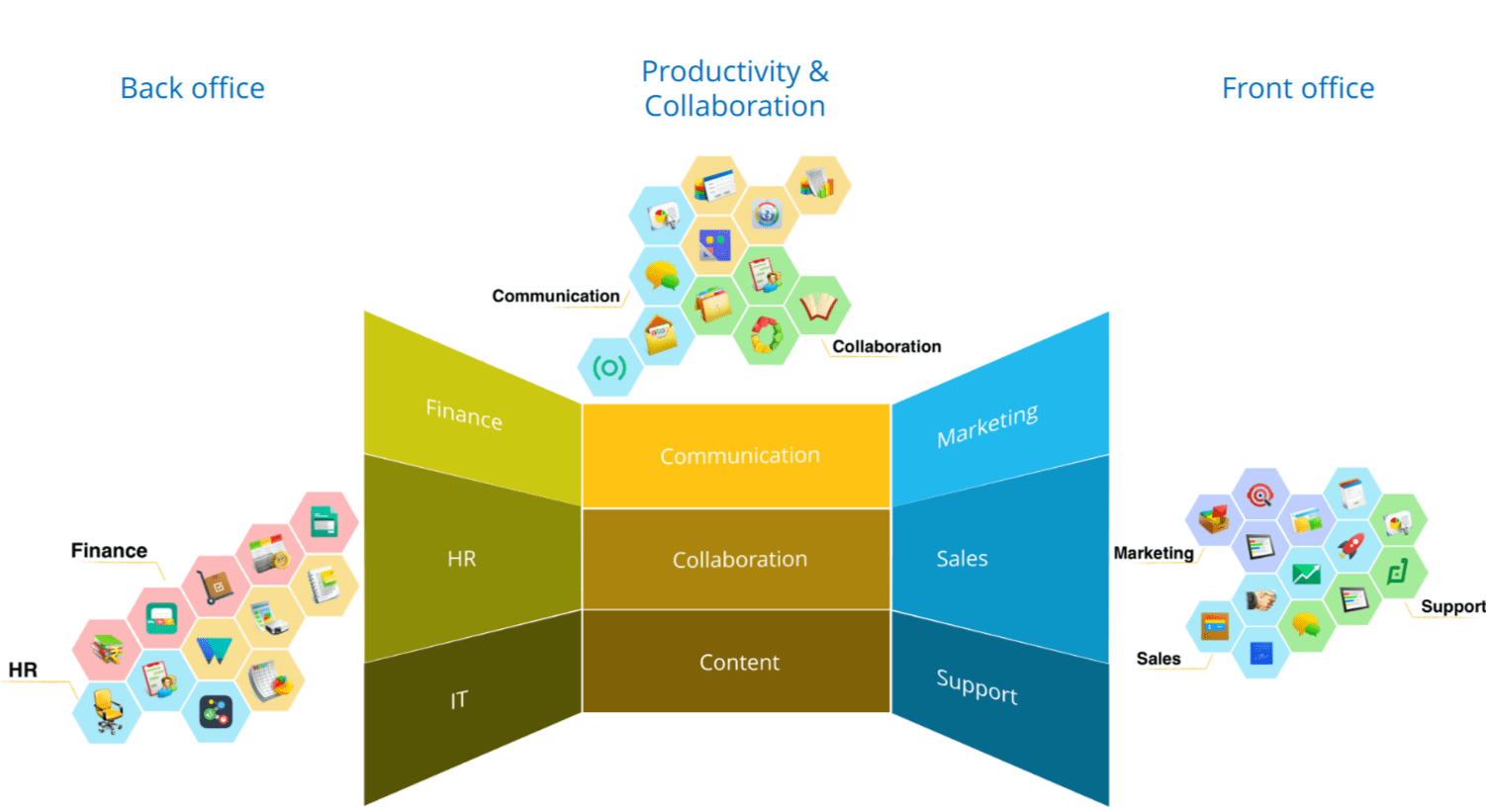When we think Big Tech, we think about giant operations based in the west-coast of the United States of America: Facebook, Twitter, Google, Amazon, and Microsoft. And certainly, their solutions have created wealth, business opportunities, and convenience. However, there are concerns, both with the amount of power accumulated by such few organisations, as well as the sheer amount of data they capture, store, correlate, and analyse about us. That is all fine, as long as you agree to the terms of use. But what if you don't? Is there an alternative?

The separation of Business versus Personal
Aurelian Group is a Digital Business specialist. We focus our attention to business platforms. However, there is an increasing overlap between business and personal - the line of separation is fading. Also, your choices as a business, on how you market, and which trackers you use on your website, may affect your customers privacy. Therefore, some attention is provided to the personal side of tech, and how a business can ensure not to participate in third party tracking of their employees and clients.
Marketing
Putting adds on Facebook, Google, Twitter, or LinkedIn may be a successful marketing strategy, at least for now. Since these are based on market value of the click or impression, this depends on your ability to outspend your interested competition. Ultimately, if a company with much deeper pockets decides to outspend you, your are not seen. Further, it has become evident that community based platforms can decide not to support your business the investment you made to obtain your following may be gone from one day to the next.
Recommendation: Use the platforms as are successful to you, but also invest into up and coming tech platforms offering similar services.
Big Tech is also Big Track - in order to track your marketing spend from the likes of Google and Facebook (and others), you need to install a tracker on your website. This tracker is a piece of code hidden in the header of your website. This code is used to identify each unique customer (browser/computer combination) that visits your site. While it gives you some aggregated analysis, and potential for re-targeting, what your trade in for this is your piece in the puzzle for your customer's browsing history. In other words, YOU are complicit in the adjunct surveillance of anyone visiting your site.
Recommendation: remove all third party trackers from your site, and replace that with SalesIQ - a Zoho application that captures visitor information (and potentially visitor engagement via chat) on your website, without making any of this available to third parties.

Communication
Today there are more communication tools at our disposal than ever before. Most of these are governed by Big Tech, either as the creator/owner of the app (and associated data), or as gatekeeper (see here for an example of the concerted power Big Tech wields).
Microblogging has become so popular that it is difficult to imagine that it is actually quite a new phenomenon. When Twitter started, my own estimation was that it would never be big, as no-one cares about the photo of the banana-split ice-cream you had for lunch. History has proven me very wrong, and the addictive nature of the dopamine hit that is released upon confirmation of your post has proven to be a success formula. We no longer post to communicate, we post to be liked. In 2019, I made the move to no longer have a corporate presence on Twitter - and I never was really active on it personally anyway, so I did not have to look for alternatives. However, they are there (Parler, Mewe, Gab, and new platforms will arrive when a vacuum is created).
Recommendation: Assess whether your business needs to be on any of these platforms. If you do see a benefit, it is recommended to diversify - with the increased backlash against the data surveillance and sanctioned speech, your market may find itself moving to different platforms as well. Look at this from a pure business lens - where is your market going to be?
Instant messaging has taken over SMS text messages as the preferred method of communication. It allows for free messaging regardless of the recipient's location (i.e. overseas numbers), or content (rich content such as video and images). WhatsApp and WeChat are the most used instant messaging apps - each come with their own privacy concerns (see here for the update in the Terms of Use for Whatsapp).
Recommendation: There are alternatives such as Signal, Telegram, and just recently launched Arattai (get it here in the Google PlayStore, or Apple AppStore. (Note: Arattai is developed by Zoho, an independent cloud organisation that has over 50 million customers world-wide. Zoho is self-funded - there are no venture capitalist funds, there are no publicly traded shares - Zoho is free to do as they see best to serve their customers - and their stance on privacy does not need to be negotiated with outside shareholders that want to see a short-term return on their investment.
The big elephant in the room of communication is corporate email. While personal email, you could choose to go via Protonmail - it is not necessarily built for corporations or even small businesses. That leaves Google (Gmail as part of Gsuite) and Microsoft (Outlook and Exchange as part of Office365). The issue here is that it is not just email - it is a collaboration and communication suite.
Recommendation: Zoho Mail for personal use, Zoho Workplace for small businesses.

Zoho One - comprehensive business suite for USD 30 per employee per month (plus taxes)
When you are running a small business, and you would like a powerful, yet affordable suite of products, from a company that respects your privacy as well as your clients, I would invite you to try Zoho One. The link to a free trial is below. Zoho One contains apps for:
- Sales and marketing - applications like CRM, Campaigns (email marketing), Social (social media marketing), MarketingHub (multi-channel marketing), Survey (build and publish market insight surveys)
- Finance - applications like Books (accounting), Invoice, Subscription (subscription management software)
- Delivery and support - applications like Projects (program management software), Desk (support ticketing software), Lens (AR Support)
- Productivity and collaboration - applications such as Writer, Sheet, Show (Office software), Connect (social intranet (like Yammer or Facebook for Business) with task boards), WorkDrive (secure team cloud-storage)
- Communication - applications like Mail (email server and client), Cliq (slack/teams like team messaging), Meeting (teleconference software)
- Human resource management - applications like People (human capital management software), Recruit (application tracking system)
- Miscellaneous - applications like Analytics (business intelligence and dashboards), assist (remote desktop support), Orchestly (office workflow management), Forms (simplify data entry, publish forms for customer entry)
Aurelian Group is a Zoho Partner - if you would like to try these applications for yourself, it would be appreciated if you use the links below for a free trial (no credit card required). Full disclosure: these are affiliate links.
| Package/purpose | Global Data Center (US) | EU Data Center | Australia Datacenter |
|---|---|---|---|
| Zoho Mail/Workplace / email and collaboration (speadsheet, documents, presentations) | Sign up for trial Starting from USD 2 per month for personal mail | Sign up for trial | Sign up for trial |
| Zoho SalesIQ / web visitor tracking and engagement | Sign up for trial Star | Sign up for trial | Sign up for trial |
| Zoho Remotely / collaboration suite for remote working | Sign up for trial | Sign up for trial | Sign up for trial |
| Zoho One / comprehensive business suite | Sign up for trial | Sign up for trial | Sign up for trial |
